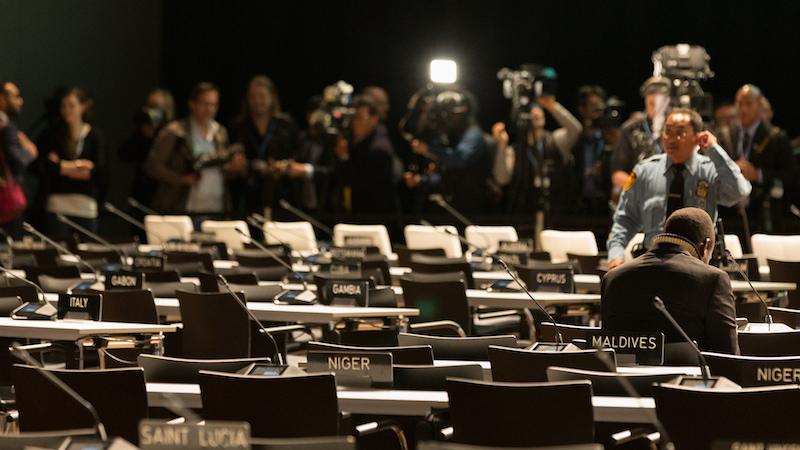International climate cooperation faces a major setback if deadlines for a rulebook to implement the Paris agreement are not met, Brazil’s chief negotiator warned on Friday.
As talks in Bonn, Germany, near the halfway mark, rich and poor countries are at loggerheads over pre-2020 action to tackle climate change. That dispute risks holding up progress on the Paris rulebook, which is due to be finalised in 2018.
Emphasising the urgency of reaching agreement, J Antonio Marcondes raised the spectre of Copenhagen, a 2009 summit that ended in failure.
“We cannot run the risk of repeating Copenhagen, when the world failed to agree on action… it took us six years to redo what we could not do in Copenhagen. The world cannot afford such failure,” Marcondes told a press conference.
“If we are to reach the goals set out in Paris, we cannot delay action until 2020. Ambition and actions should not be postponed,” he said. “Not all countries here in Bonn, as it has been clear, appreciate the need to tackle actions before 2020.”
A bloc of 134 developing countries, including China and India, warned of a crisis of trust if developed countries refused to put pre-2020 action on the formal negotiating agenda.
“We’re not asking for unrealistic commitment from developed countries, we simply [want them] to fulfill pledges have already been made,” said Gu Zihua, a senior Chinese negotiator.
“Pre-2020 is really a trust-building issue for developing countries,” he said on sidelines of negotiations, “If [developed countries] just turn down all proposals, then how could developing countries have trust for future discussions?”
Report: African campaigners call for US to be kicked out of climate talks
EU climate negotiators said they accept the importance of early action and are on course to meet their 2020 pledges, but disagree that the subject needs to be formally negotiated.
“There are other ways… and other spaces provide opportunities to discuss this… but EU is not convinced new agenda item is the best way,” said Elina Bardram, head of the EU’s delegation.
Specifically, developing countries are calling for a timeline to ratify the Doha Amendment to the Kyoto Protocol. This was adopted five years ago to extend the pact – which places the onus on the developed world to reduce emissions – to 2020. To date, 84 countries have ratified; 144 are required to bring the amendment into force.
Bardram said that while the EU is on course to meet its 2020 carbon-cutting targets and ratification of the amendment is “imminent” they cannot agree to a timeline due to domestic legislature procedures.
She also emphasise the need to move from the Kyoto Protocol, which binds only industrialised nations, to the Paris Agreement, a universal deal for all countries to take action.
Li Shuo, a senior adviser for Greenpeace East Asia, said pre-2020 action is becoming “such an urgent issue that we can hardly afford any political games”. He said it was important to contain the “spillover effects” and not let the debate on the issue hold back other agenda items, such as the Paris rulebook and Talanoa dialogue.
“To do that, developed countries need to start engaging and put their options on the table. So far, all that developed countries have been saying is dinner is important, but there are no plates they present on the table,” he said.
Climate Home News’ reporting at Cop23 is supported in part by the European Climate Foundation.
